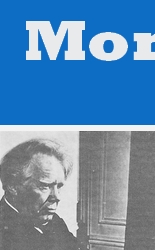

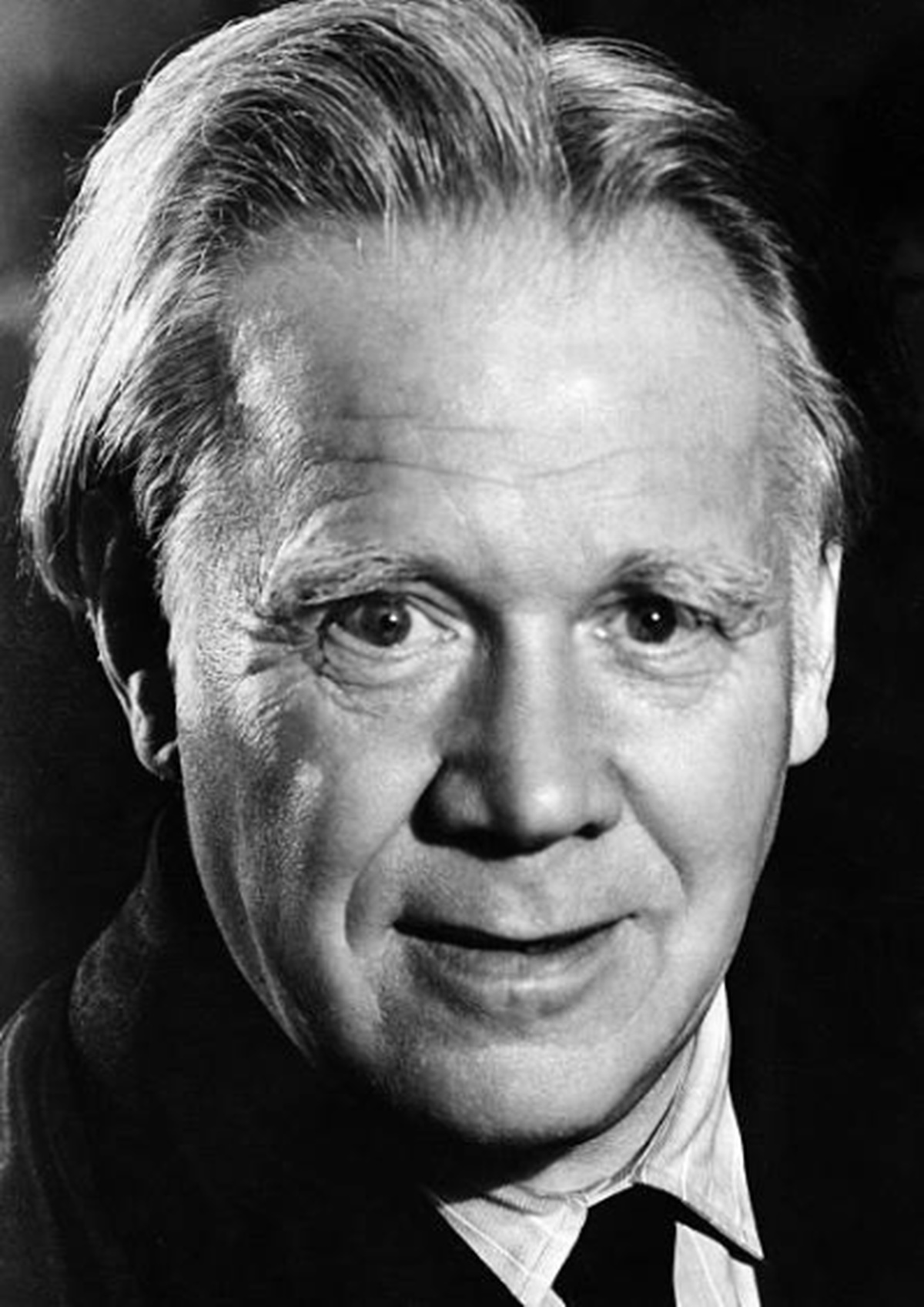
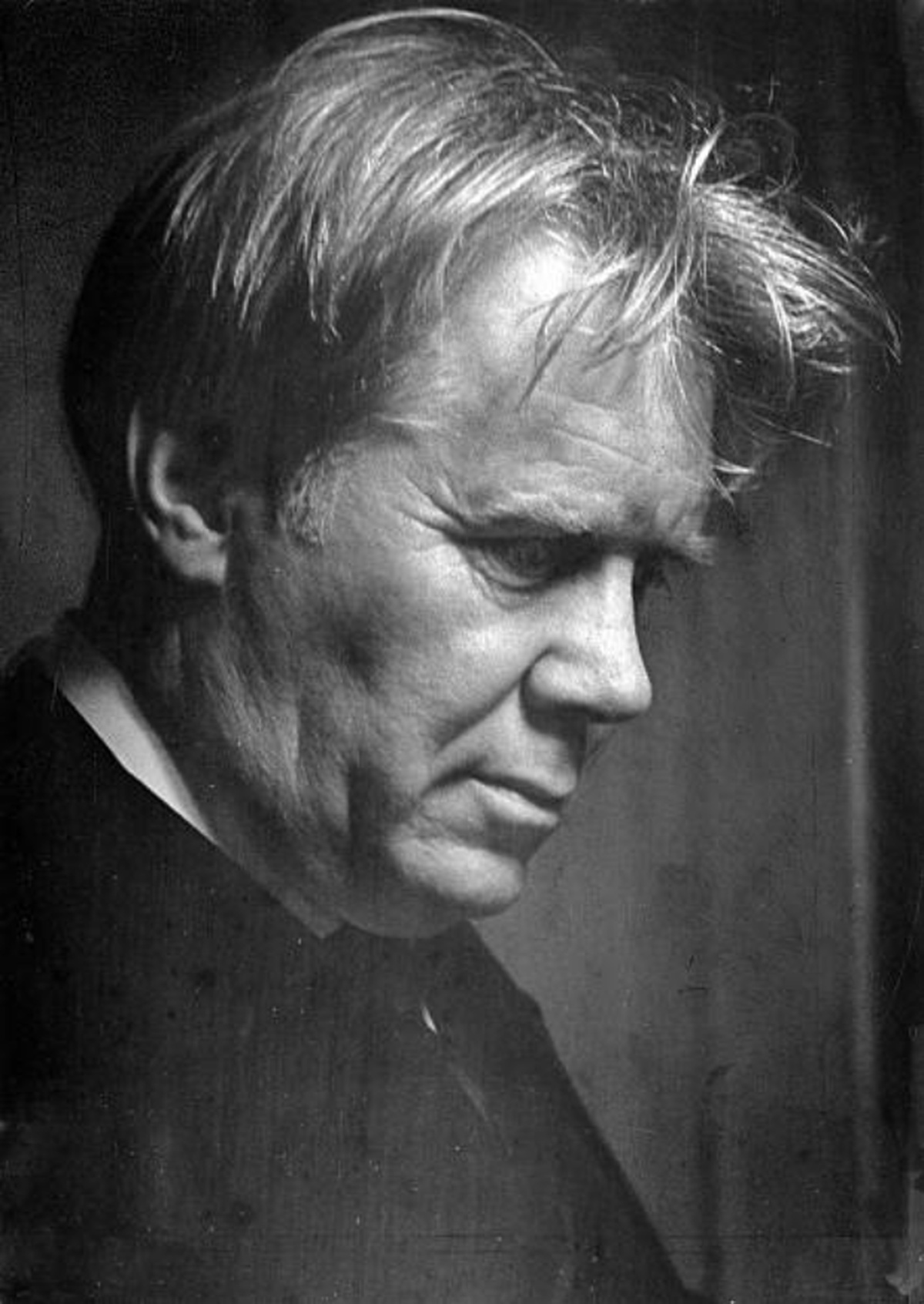
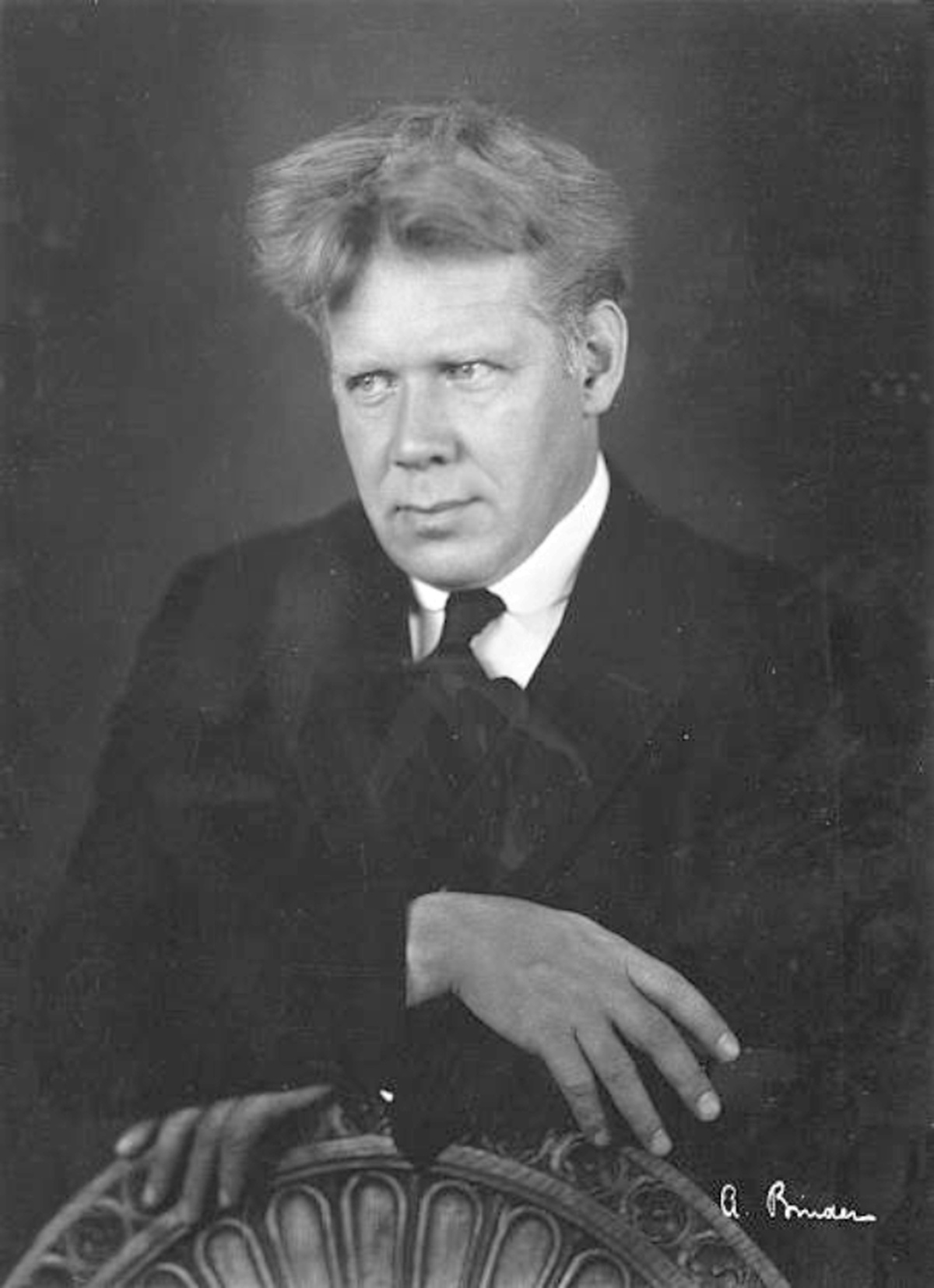
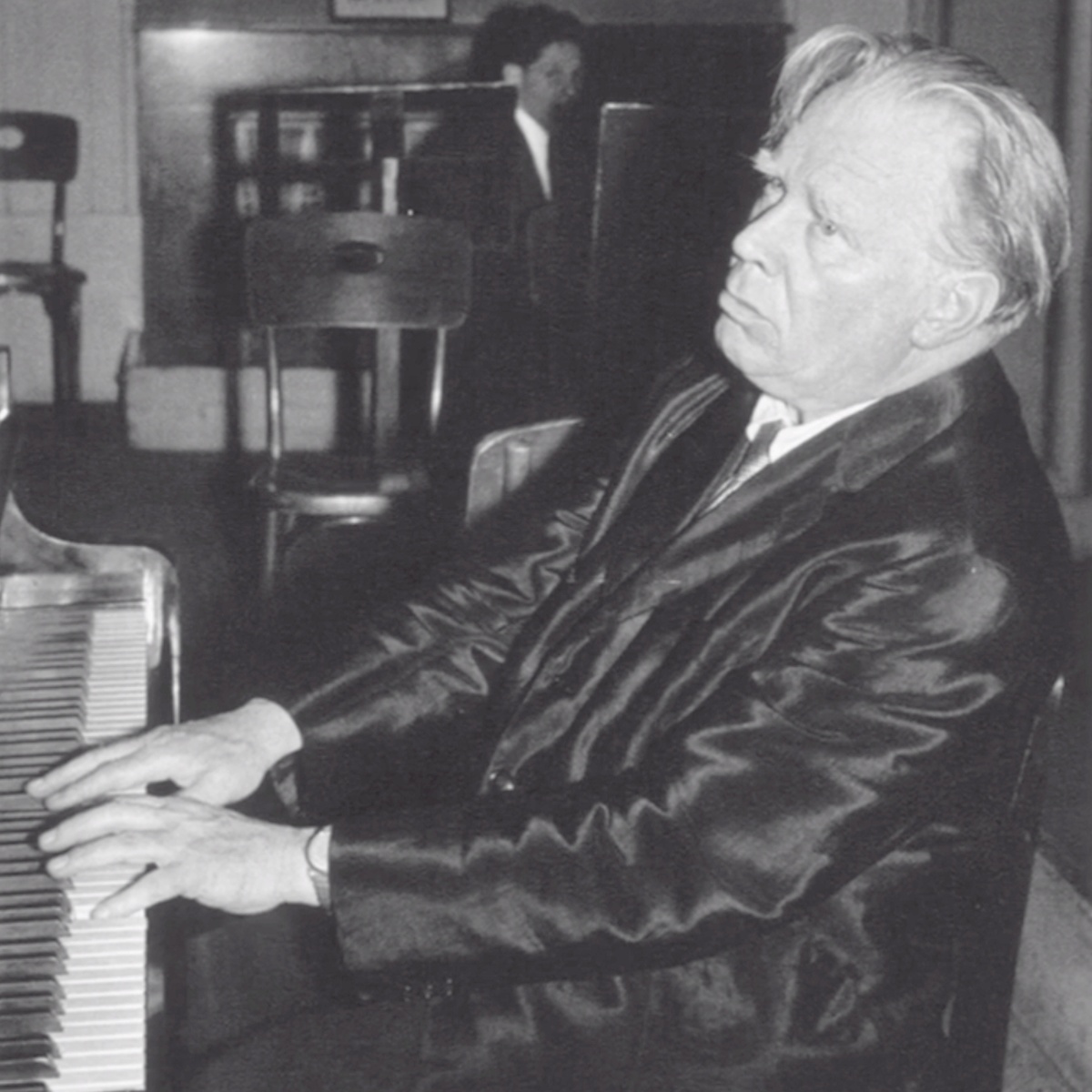
Edwin Fischer was, on the concert platform, a short, leonine, resilient figure, whose every fibre seemed to vibrate with elemental musical power. Wildness and gentleness were never far from each other in his piano-playing, and demonic outbursts would magically give way to inner peace. It was as little trouble to him (as Alfred Polgar once said of an actor) to lose himself as to find himself. His playing of slow movements was full of an unselfconsciousness beside which the music-making of others, famous names included, seemd academic or insincere. With Fischer, one was in more immediate contact with the music: there was no curtain before his soul when he communicated with the audience. One other musician, Furtwängler, conveyed to the same degree this sensation of music not being played, but rather happening by itself. His death was a grievous blow to Fischer.
Just as Furtwängler liked to play the piano in his very personal manner, so Fischer loved to conduct. Here, too, his achievement was breathtaking. His way of directing the concertos of Bach, Mozart and Beethoven from the keyboard remains inimitable. Anyone in doubt should listen to his recording of the second movement of Bach's C major Concerto for Three Pianos: perfect unity reigns from the first note to the last.
However, Fischer should be remembered not only as a solo pianist and conductor, but also as a chamber musician, song accompanist and teacher. Fischer's ensemble with Mainardi and Kulenkampff -- whose place was later taken by Schneiderhan -- reached the heights of trio playing, and as a partner of Elisabeth Schwarzkopf the master achieved the ideal fusion of simplicity and refinement. As an inspiring teacher he led two generations of young pianists 'away from the piano, and to themselves', and provided them with proper standards for their future careers. As an editor he helped to restore the Urtext of Classical masterpieces, and as a writer he formulated such memorable precepts as 'Put life into the music without doing violence to it.' Can there be a simpler formula for the task of the interpreter?
All this calls to mind Alfred Cortot, as many-sided an artist as Fischer. The two masters, who had great admiration for each other, were poles apart in their repertoire; one could say that they complemented one another. Fischer was in his element in the Classic-Romantic realm of 'German' music, with Bach, Mozart, Beethoven, Schubert and Brahms. Cortot was particularly happy with Chopin, with some of Liszt's works, and with French piano music. In Schumann, their spheres met. At home, as he once told me, Fischer liked to play Chopin, whereas Cortot is reported to have had a sneaking affection for Brahms.
Fischer was anything but a perfect pianist in the academic sense. Nervousness and physical illness sometimes cast a shadow over his playing. But in the avoidance of false sentiment he was unrivalled. Moreover, as the initiated will know, it would be presumptuous to underrate a technique that made possible performances of such fabulous richness of expression. The principal carrier of this expressiveness was his marvellously full, floating tone, which retained its roundness even at climactic, explosive moments, and remained singing and sustained in the most unbelievable pianissimo. (In conversation, Fischer once compared piano tone to the sound of the vowels. He told me that in present-day musical practice the a and o are neglected in favour of the e and i. The glaring and shrill triumphs over the lofty and sonorous, technique over the sense of wonder. Are not ah! and oh! the sounds of wonder?) By bringing the middle parts to life, Fischer gave his chord-playing an inward radiance, and his cantabile fulfilled Beethoven's wish: 'From the heart -- may it go to the heart.'
As a teacher, Fischer was electrifying by his mere presence. The playing of timid youths and placid girls would suddenly spring to life when he grasped them by the shoulder. A few conducting gestures, an encouraging word, could have the effect of lifting the pupil above himself. When Fischer outlined the structure of a whole movement, the gifted ones among the participants felt they were looking into the heart of music. He sometimes helped us more by an anecdote or a comparison than would have been possible by 'factual' instruction. He preferred demonstration to explanation; again and again he would sit down himself at the piano. Those were the greatest, the unforgettable impressions retained by his students. In the days before his prolonged illness, his vitality knew no bounds. He was happy to be surrounded by young people who trusted in him, and his playing for us was at its most beautiful. On such occasions, we experienced what he told us in these words: 'One day, the piano has all the colours of the orchestra; another day, it brings forth sounds that come from other worlds.'
What is piano-playing of genius? Playing which is at once correct and bold. Its correctness tells us: that is how it was to be. Its boldness presents us with a surprising and overwhelming realization: what we had thought impossible becomes true.
Correctness can be attained by the expert. But boldness presupposes the gift of projection, which draws the audience into the orbit of one's personality. The personal, 'impossible' element in Edwin Fischer was twofold: his playing sprang from a childlike nature, yet, if the signs were favourable, it also possessed all the wisdom of the experienced master. The childlike characteristics were his sincerity and spontaneity, his ready sense of wonder, constantly rediscovered, his joy in playing, clowning, daring -- with what breathless gusto he sometimes romped through a Mozart Allegro! The master in Fischer was proclaimed by his gift for emotional differentiation, by the beauty of his tone and its extreme refinements, by his vision as well as by his grasp of the grand design. Child and master formed a perfect union in Fischer's happiest achievements; there was nothing to pull them apart.
Piano-playing is a strict discipline. Practice -- the task of clarifying, purifying, fortifying and restoring musical continuity -- can turn against the player. Control can 'sit' on one's playing like a coat of mail, like a corset, or like a well-tailored suit. On lucky occasions, it is just there, as if in league with chance. I have never come across a control of line and nuance more exciting than that achieved by Fischer in his performances of the slow movement of Bach's F minor Concerto, in the long paragraphs of the A minor Fantasia, or in some pieces from The Well-Tempered Clavier. (These examples should suffice to call to order the detractors of Fischer's technique!) Yet this excitement does not obstruct the listener -- it liberates him. There is something untamed even about Fischer's most decorous playing. 'In the work of art,' says Novalis, the German Romanticist, 'chaos must shine through the adornment of order.' (Im Kunstwerk muss das Chaos durch den Flor der Ordnung schimmern.) Fischer's order does not betray the pressure of reason; it represents creation in a state of innocence. So, does control appear in the guise of improvisation, as with the great Cortot? I would rather say that Fischer completes a circle: setting out from improvisation, he takes the route of a finely regulated awareness which eventually leads him back to improvisation.
There are pianists whose playing is so predictable that if they fell into a faint it would create a welcome diversion. Fischer could spring a surprise at every note; he could also alarm you with his nerves, or make your hair stand on end with his childish fancies (as in his dreadful cadenzas!). There are pianists who hang on the music like parasites, and there are the platform hyenas who devour masterpieces like carrion. Fischer was a giver; he let out his breath and recommended his pupils to practise exhaling every morning. (Inhaling, he said, was easy.) This 'musical exhalation' was made possible by a singularly relaxed technique. Though it also gave rise to some inaccuracies, these in the end mattered little; the gain was overwhelming.
'You're trying too hard!' he would say to highly-strung and self-aware students. But Fischer's influence was not necessarily a relaxing one. He was apt to make the phlegmatic deliberately nervous in order to coax from them a spark of temperament. And he liked to put the pressure on when it was a question of establishing the grand design: he encouraged us not to take things apart and show their components but to put them together, place them in perspective, and see the detail in the context of the whole.
How can I convey the impact of Fischer's playing to someone who never heard him 'live'?
During the nineteen-fifties, an orchestral player once came up to me after a rehearsal. He said he used to play in Edwin Fischer's chamber orchestra, and in his imagination was still doing so. He recalled particularly how fresh the Bach concertos used to sound in each performance. Even now, twenty-five years later, he still had goose-pimples whenever he thought of a certain passage. 'Look at this,' he said, rolling up his sleeve.
Fischer, particularly after the last war, was afraid of the microphone. The recording he made of Brahms's F minor Sonata, for example, gives only one glimpse -- at the entry of the D flat major 'patriotic' theme in the last movement -- of his real conception of that work. Fortunately, there are among his records some which come fairly close to the reality of his playing. A few even set a standard of unmannered perfection which transcends the bounds of fashion. Best among his earlier records, in my opinion, are a number of wonderful Bach interpretations, as well as the Schubert Impromptus and the Mozart Concertos K. 466 (D minor) and K. 491 (C minor); among his later ones Bach's C major concerto for Three Pianos (with Ronald Smith and Denis Matthews) and Beethoven's Emperor Concerto under Furtwängler. The recording of Bach's C major Concerto was not done with his usual partners (who were former pupils); all the more admirable, then, is the complete unanimity of style, impressive proof of Fischer's power of communication. His conducting of the tuttis in Beethoven's Third and Fourth Concertos on his post-war records is, to my ears, still unsurpassed. A disc of Schubert Lieder with Elisabeth Schwarzkopf, and the recording of Brahms's G major Violin Sonata with Gioconda de Vito bear eloquent testimony to his mellow late style. The performances of the Fischer Trio unfortunately only live on in the memory of those who were present at their concerts; how could the recording industry possibly have let this happen?